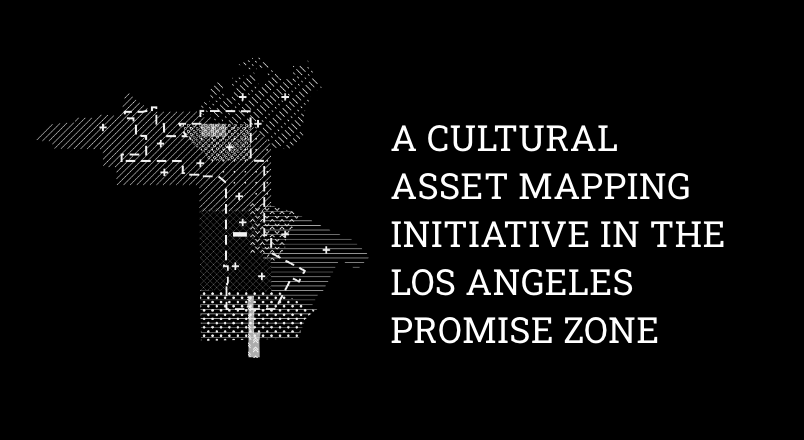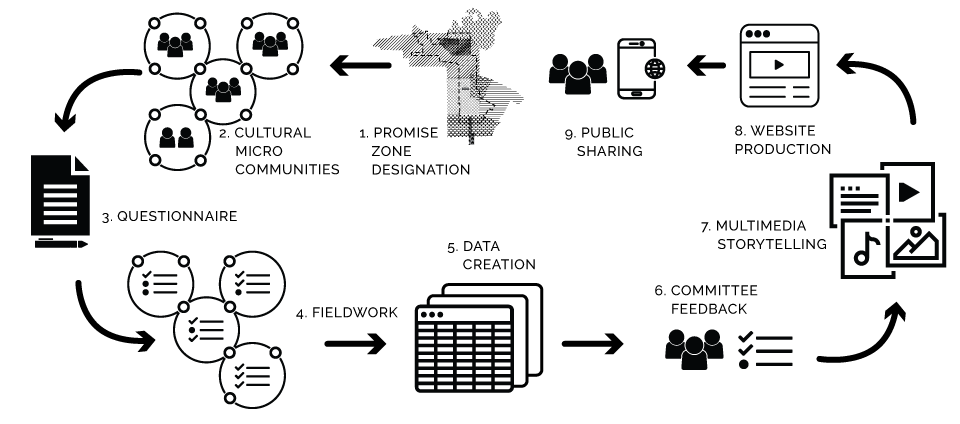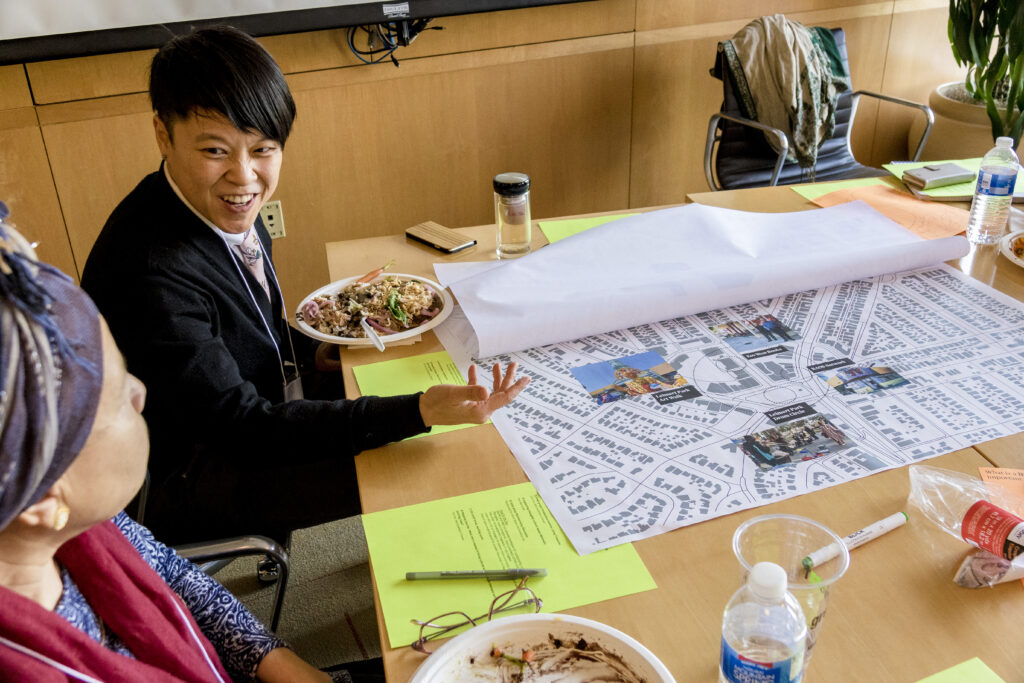Promise Zone Arts (PZA) is a cultural asset mapping initiative that gives Los Angeles residents a participatory platform to spotlight the artists, sites, cultural practices, and tradition bearers that they deem significant. The program utilizes cultural mapping strategies, ethnographic documentation, community gatherings, and free public events to identify and support the cultural neighborhoods. This project is a part of the federal Promise Zone Program that fosters local economy and improves public safety and education access in urban areas of need.

During my time at the City of Los Angeles Department of Cultural Affairs, I was brought into the developmental planning stages for this program. After the project received funding from the NEA, I led the digital and data strategy with the responsibility of architecting the documentation and knowledge system for the program.
At its conclusion, the project received 865 questionnaires and 471 cultural treasures were nominated.

I contributed my experience with ethnographic research design and offered my digital expertise to scale the research and documentation efforts. There are 11 cultural neighborhoods in the first LA Promise Zone designation, among these neighborhoods, there are more than 8 languages spoken in these communities. It was a challenge to develop a system with the flexibility and responsiveness to the residents’ experience and diversity.
I led the data and mapping efforts by designing the cultural asset database, creating the research methodology, coordinated the Open Data publishing, and directing a multi-organizational data team. I also directed the web production and content strategy.
The Promise Zone Arts website contains an interactive data map, a database with downloadable cultural treasure information as spreadsheets, and a storybank with 45 short multimedia documentaries highlighting the cultural treasures. Explore the site!

Working with government data has political ramifications. I stewarded the project’s data safety knowing that many of the project participants were suspect of government data collection efforts, especially as the result of the immigrant bans during the Trump administration. This led to measures of protecting privacy while retaining the spirit of uplifting community members’ cultural contributions and artistic expressions.
More:
Promise Zone Arts website
Promise Zone Arts in USC Price article
Credits:
Umi Hsu: digital, data, and web strategy
Michael Manalo: graphic and web design
Amy Zhou: data management
Eduardo Robles: data management
Heber Rodriguez: program management
Amy Kitchener: Co-director
Karen Mack: Co-director
Annette Kim: Research advisor